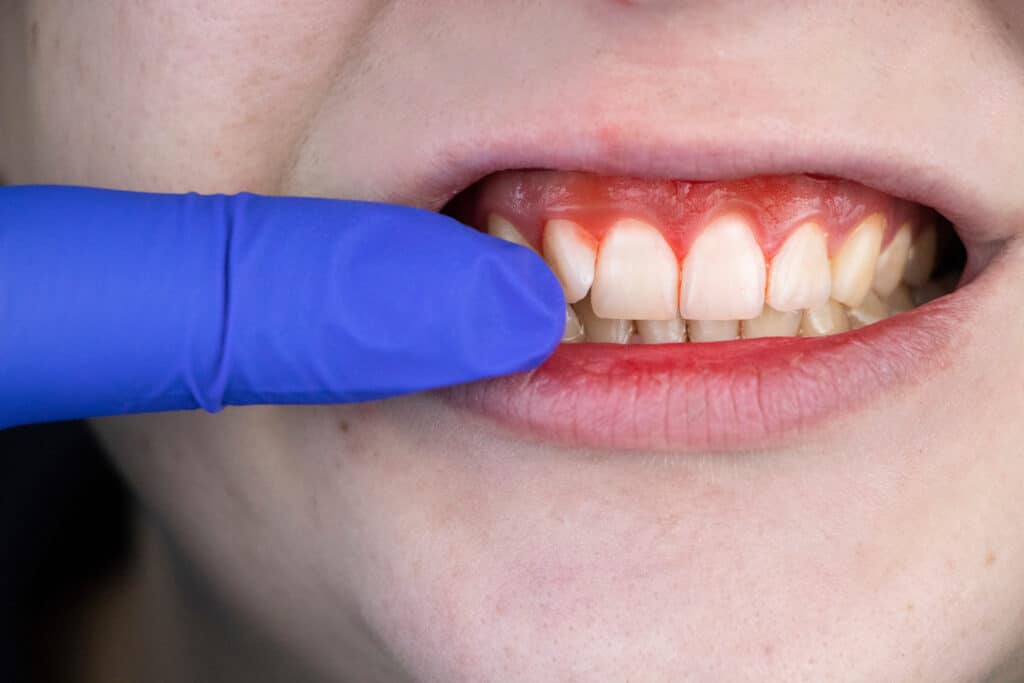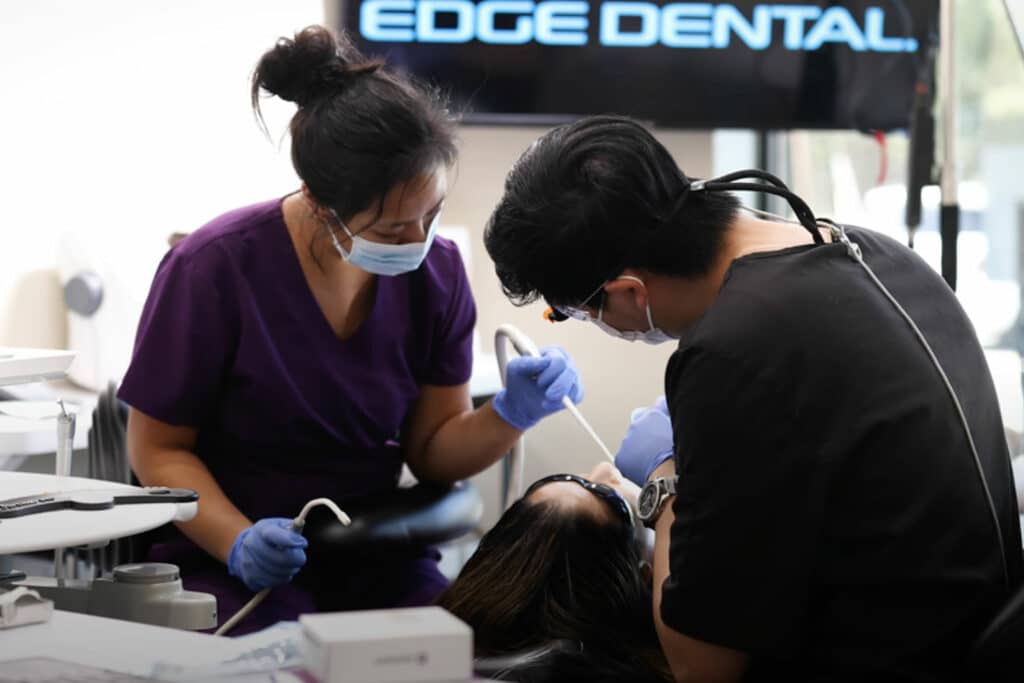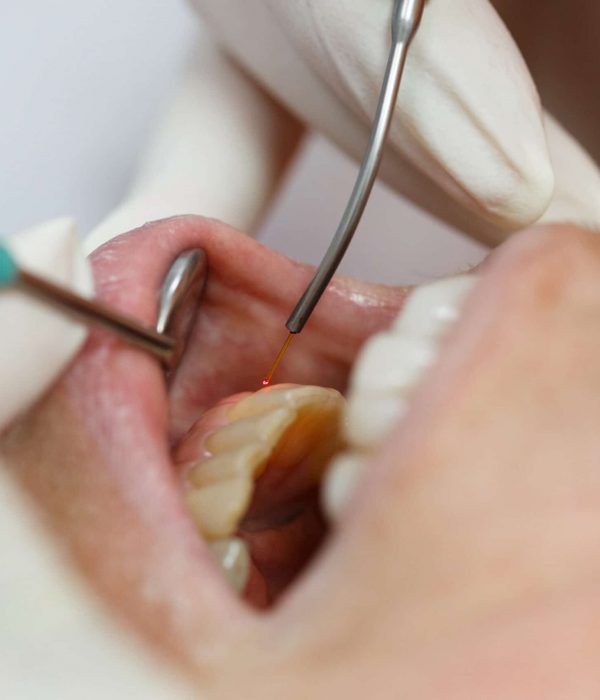darrenkfuller's blog
TheLaser Dentistry For Gum Disease states that the leading causes of gum disease are untreated dental problems, long-term conditions like diabetes, genetic predispositions, and specific drugs. Patients may find it challenging to select the best gum disease treatment option due to the variety of accessible options.
The dentist at Dental Office Houston uses a laser to access an infected area and eradicate diseased bacteria and tissue as part of a non-surgical gum disease treatment. Because there is no need for stitching or cutting during treatment, the patient has less pain than traditional gum surgery, making it a great substitute.
How Does Laser Treatment Work In Periodontal Disease?
The dentist at Dental Clinics Near Me will use laser technology to reach and remove the infected gum tissue from the area surrounding the root of your mouth in gum disease laser therapy, also known as gum laser therapy. The process of root scaling begins by removing the diseased tissue and making its root visible.

It entails eliminating plaque and tartar that may have amassed below your gum line and around the tooth's root. Later, your dental expert at Memorial City Dentistry will smooth down the root to eliminate rough areas that could draw bacteria and lead to secondary infections. Later, during the healing process, the area between the root and the gum can regrow.
Is laser gum surgery less invasive?
The use of a laser during gum surgery is significantly less intrusive than earlier techniques. The gum tissue must be cut using surgical implements during traditional gum surgery. It produces sore lesions that need to be stitched up and allowed to heal. There is a lower chance of infection, sensitivity, and bleeding following the surgery. It is because the laser never penetrates your gum tissue.
Why should we choose laser gum disease treatment?
Below are some of the major reasons why many dentists at Dental Offices In Houston advise their patients to choose laser treatment (non-surgical) over traditional oral surgical treatments for treating gum disease:
- Laser gum disease reduces gum bleeding by eliminating and destroying the germs that cause tooth infections.
- They can tailor gum laser therapy according to the needs of individual patients. It allows your dentist complete control over the process and enables them to create a customized treatment plan for you.
- There is no need for anesthesia because laser gum disease treatments are minimally invasive and substantially less painful for the patient.
- Laser procedures can help you keep your teeth healthy while removing cavities.
- Because your tooth, gums, and surrounding tissues did not expose to as much trauma as during routine surgery, laser gum sterilization therapy provides quicker healing timeframes.

What about the recovery process of laser gum surgery?
Weeks of recovery following traditional gum surgery include soreness, edoema, and a liquid diet. Laser gum surgery has a 24-hour recovery period, and most patients only experience minor discomfort. The laser procedure enables speedy recovery with little downtime because it doesn't require cutting or stitching. Your doctor removes less tissue by avoiding using conventional surgical tools like scalpels. It results in less discomfort, bleeding, and inflammation.
Conclusion
We hope the above-provided information will help you learn some beneficial and valuable aspects regarding laser treatment for gum disease. For further information, please visit laserdentistrynearme.com.
Article Source : https://www.techsmarttips.com/is-laser-treatment-effective-for-gum-disease/
While dentists have been using drilling and other dental procedures for centuries to remove infected or dead tissue from a decayed tooth, laser dentistry has changed the dental ways of root canal procedures. In this, Dental Clinics In Houston detects and kills the harmful bacteria in your teeth.
Why are root canals performed?
If your teeth become severely decayed or damaged, then the innermost area, called the pulp, may become inflamed and infected. In such a case, your teeth’s pulp exposes to harmful bacteria and gets injured. Texas Dental Clinic can recommend a root canal treatment to stop further infection and resolve the inflammation in the cavity.
What are the signs of pulpitis?
To save your tooth that is affected by pulpitis, you should visit Houston Dental Clinics for prompt treatment; here are some common signs and symptoms that you need a root canal treatment:

- Sensitivity due to hot, cold, or sweet foods
- Inflammation and immeasurable pain around the site
- A foul taste in your mouth
- Bad breath and instant fever
- Swollen in your lymph nodes
The laser makes root canal procedure less time-consuming than traditional. It may vary on the procedure and severity of your case and takes between 5 to 30 minutes.
How is a root canal performed?
The main objective of root canal treatment is to save your tooth from an eruption by removing the infectious part of your teeth before refilling and sealing them. Traditionally, Houston Dental Offices performs a root canal by opening the inside of your infected tooth and using dental health to clear the pulp.
Then the dentist disinfects the area with an antibiotic and seals your tooth with gutta-percha and special dental cement. Initially, your dental team fills your teeth with a temporary filling or dental crown once an X-ray and digital scan confirms that your teeth are properly clean.
Use of laser dentistry for a root canal
A combination of laser and traditional dentistry removes the infected pulp and exterminates the bacteria more effectively—also, this help in preventing further reoccurring infection. Often, Dental Offices In Houston use drilling to access the inner chamber, but here they use a soft-tissue laser to sterilize the tooth structure, including the area such as dentinal tubules that may be hard to reach with conventional treatment.

This procedure offers a pinpoint light to expose the pulp of your teeth and leave more healthy teeth than the traditional procedure. If laser dentistry near me finds you need reshaped teeth walls of the canal. Moreover, this involves less friction, significantly reducing pain and discomfort.
Conclusion
Still, researchers are researching the use of lasers in various dental treatments such as root canal, teeth filling, and deep cleansing. In a root canal, there are some notable benefits of adopting laser treatment for pulpitis. If you are experiencing any such issue, you should immediately visit Dental Office Houston Tx for laser assistance treatment.
Article Source : https://www.bloggingpalace.com/is-the-laser-root-canal-painless/
Laser dentistryuses lasers to make dental treatment easier and less invasive. Moreover, laser dental procedures offer more comfort than traditional drills and tools.
LASER means “Light Amplification by the Stimulated Emission of Radiation.” the instrument creates a narrow beam of light to resolve dental issues by removing or reshaping the tissue.
Uses of laser dentistry
- Treatment of hypersensitivity
- Tooth decay filling or removal
- Treating gum disease
- Whitening and deep cleansing of your teeth
If you are suffering from such problems, visit your LANAP Laser Dentistry Near Me.

How are laser treatments performed?
There are two types of procedures that your laser dentistry includes: hard tissue, which refers to your teeth, and soft tissue, which refers to your gums.
Hard tissue procedures
Cavity detection: laser can detect cavities early by scanning your tooth properly, and also, human eyes can’t detect tiny pores on your teeth
Tooth preparations and dental fillings: you don’t need anesthesia to treat dental issues. Also, they can kill bacteria in a cavity, which can help you in the long term.
Treating tooth sensitivity: laser can treat hot and cold sensitivity around your teeth roots.
soft tissue procedures
Treating a gummy smile: Dental Clinicuses a laser to reshape gums tissue associated with gummy smiles, in which your gums cover much of your teeth.
Crown lengthening:Laser dentistry can reshape your gums and bone tissue for a healthier tooth structure with teeth restoration.
Treating tongue frenulum attachment: Laser dentistry can treat those suffering from a thick tight frenulum.
Removing soft tissue folds: Laser dentistry can remove your soft tissue from ill-fitting dentures without pain.
Other laser procedures
Viewing tissues:optimal coherence therapy will helpMemorial City Laser Dentistry to see inside your tooth and gums easily.
Removing benign tumors:laser can help you to remove tumors from the palate, gums, and sides of lips; also, this is a suture-free method.
Treating obstructive sleep apnea:Lasers can reshape your throat and relieve breathing problems such as sleep apnea caused by tissue overgrowth. You should visit your dentist for proper treatment of dental issues.

Temporomandibular joint(TMJ) treatment:Laser dentistry can reduce pain and inflammation around your mouth and head joint.
Nerve regeneration: Lasers allow regeneration of damaged blood vessels, tissues, and scars.
Treating cold sores: Lasers fasten your healing process and reduce pain from cold sores.
What types of lasers are used?
Laser Dentistry Near Me uses hard or soft tissue laser, depending on the procedure. However, some will use both lasers if treatment allows it.
Hard tissue lasers can cut through tooth structures. Their wavelengths are absorbed by the combination of water and specific material in your teeth. These lasers are commonly used to prepare and reshape your teeth for composite bonding or to repair dental filling that has been worn out. You should visit your dentist for a healthy and hygienic smile.
Article Source : https://www.spiceupblogging.com/is-laser-treatment-good-for-teeth/
